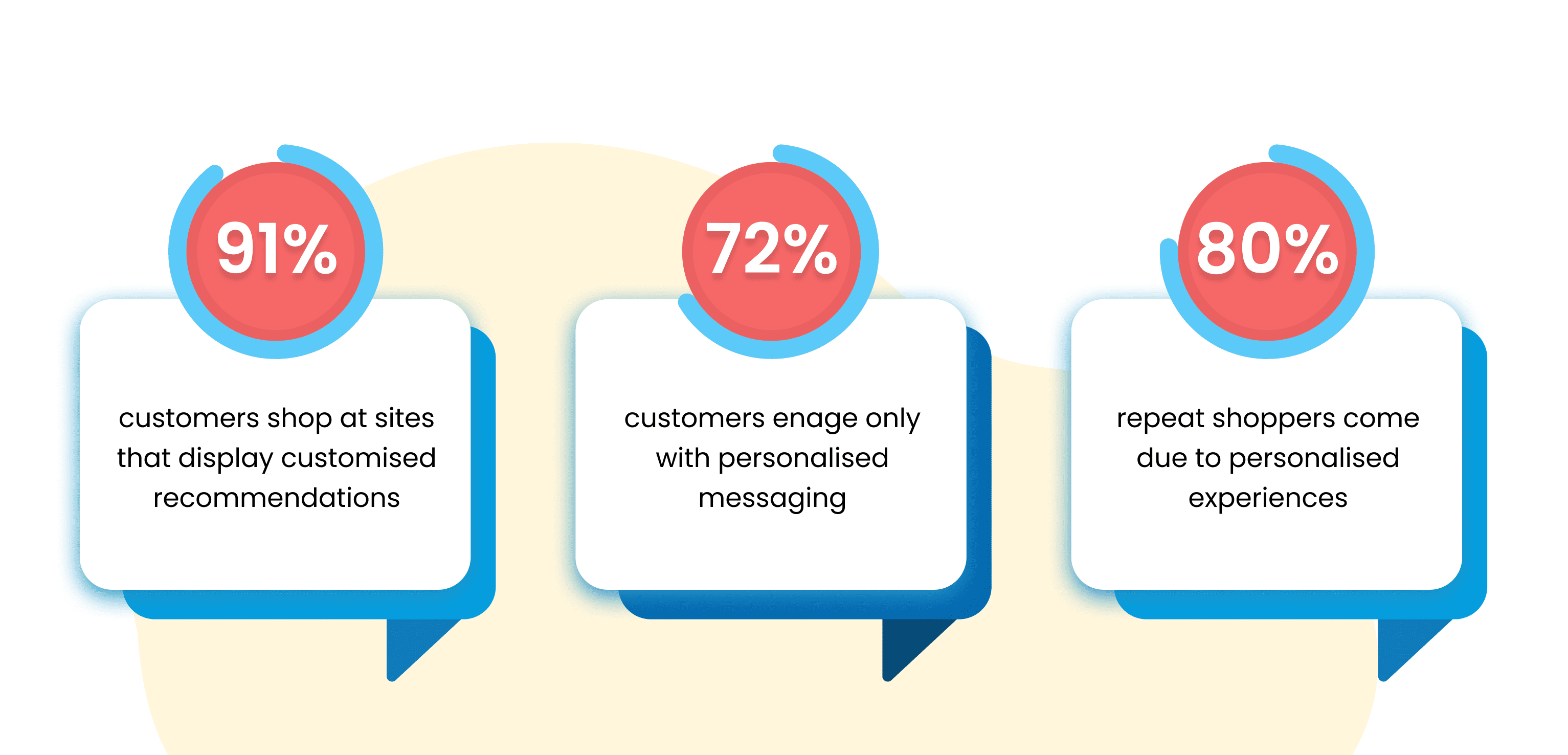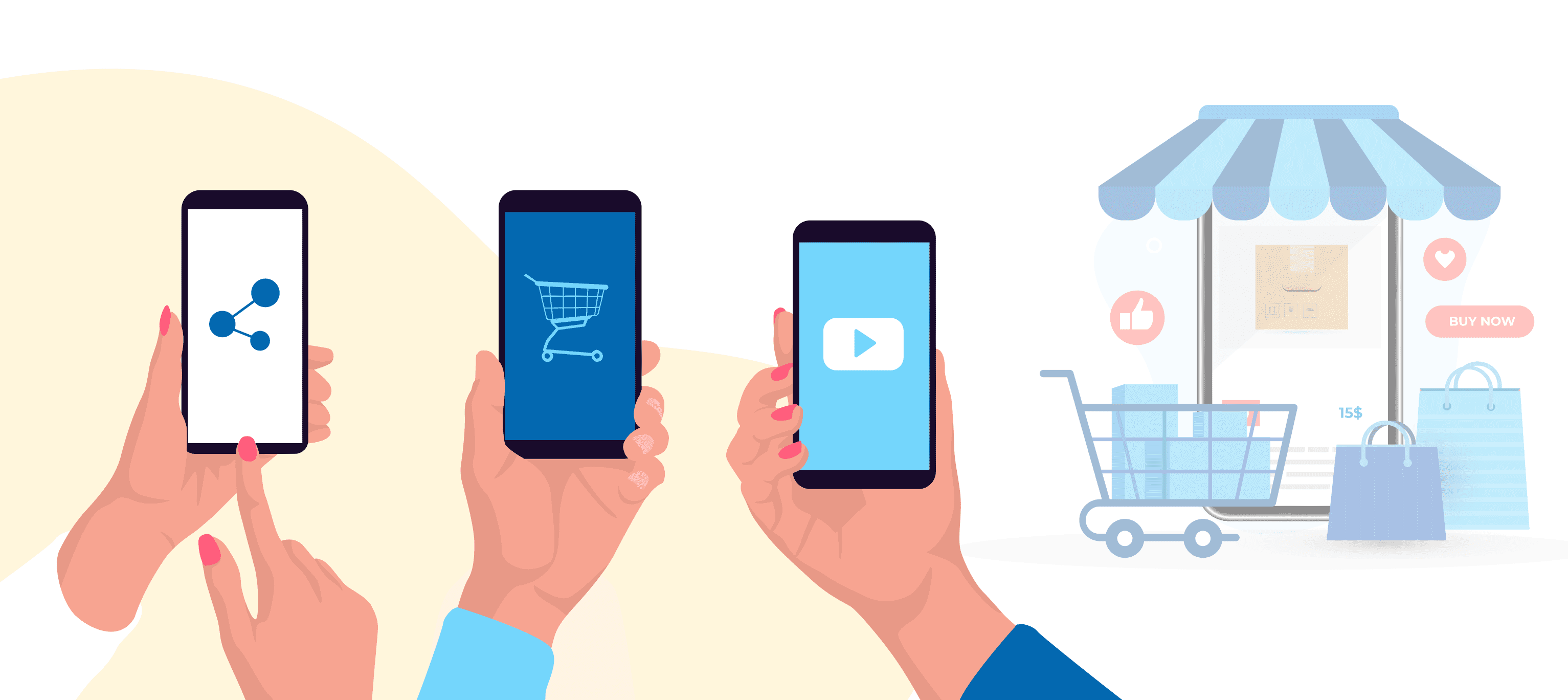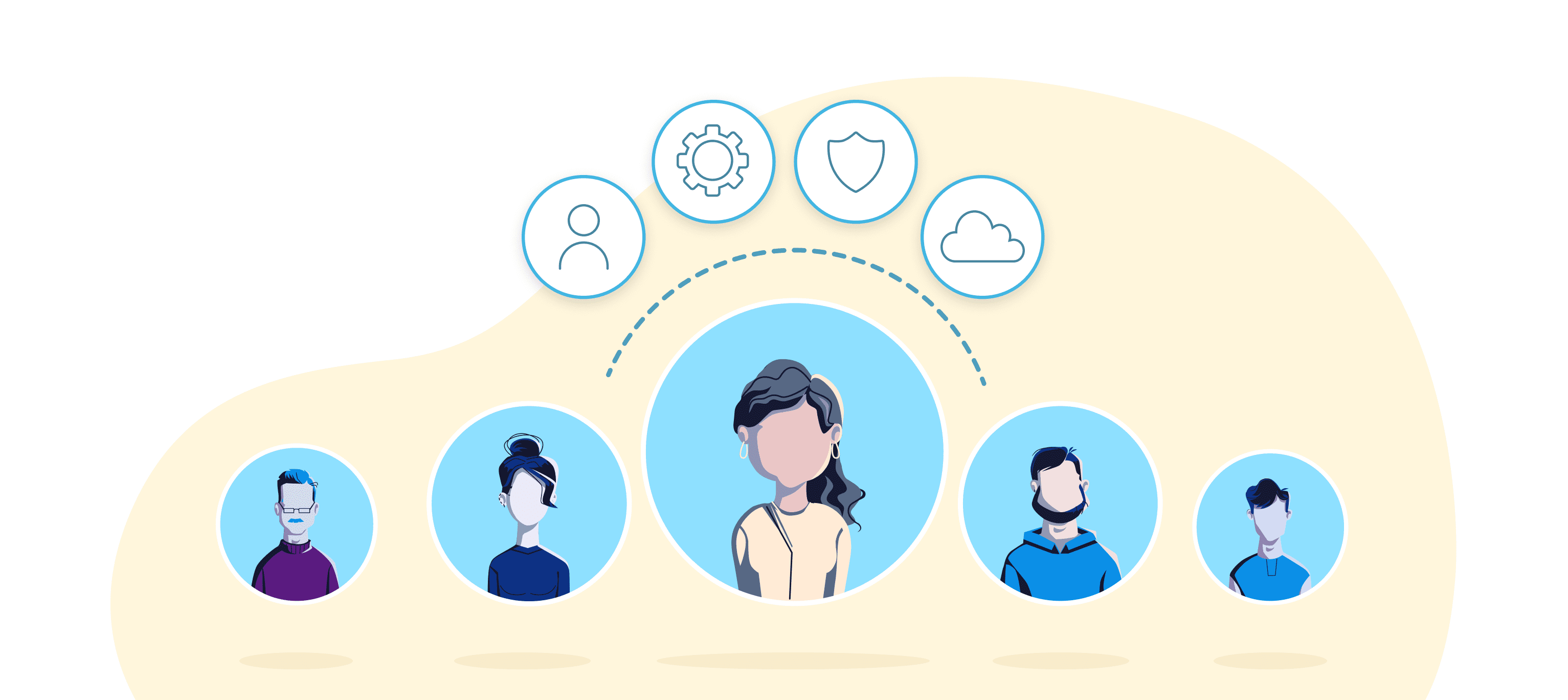Personalization is powerful no matter the type of solution (content, support, ads, recommendations, etc.) because personalization creates a more relevant experience for the customer.
It allows the brand to create an emotional connection that fosters trust, satisfaction, and loyalty and ultimately differentiates the brand from other competitors.
In fact, 76% of customers will choose a brand that delivers a personalized experience, according to a report by McKinsey. Why?
The top reasons are that personalization makes it easy for the customer to find what they want, gives them relevant recommendations, tailors content to their needs, and delivers more relevant promotions. All of this culminates in a smooth and streamlined customer journey.
In this article, we delve into personalized customer service and its impact on business success and growth.


What is Personalized Customer Service & How is it Different from Traditional Customer Service?
Personalized customer service is a strategy where service experiences are tailored to each individual customer’s needs and preferences.
It requires you to gather data pertaining to user interactions, their interests, their behaviors, and so on, and then use that information to deliver a customized solution – which can be a support answer, a product recommendation, an upgrade opportunity, etc.
In comparison to personalized customer service, traditional customer service involves using a one-size-fits-all strategy. For example, your support team walks the customer through a predefined script or funnel in order to gather more personal and situational information.
There are some key differences between traditional and personalized customer service:
Focus: In traditional customer service, your focus is inward – what product do I showcase, what feature do I talk about, etc. In personalized customer service, the focus is outward and on the customer. Every experience is tailored for individual customers based on their preferences.
Data acquisition: Personalized customer service is driven by customer data. A brand needs to gather huge amounts of customer data in order to personalize the experience (creating a reliance on technology as well). Traditional customer service, on the other hand, relies more on experience and intuition and on predefined funnels.
Customization: With non-personal strategies, the services that are offered are standardized for all customers – a one-size-fits-all service. With a high level of personalized customer service, the solutions are customized to each customer’s needs and preferences.
Relevance: Personalized customer service is highly relevant to the individual customer right from the get-go and takes the customer forward in their journey seamlessly, whereas traditional customer service is more brand-oriented and relies on the customer’s input for the experience to move forward.
Personalized customer service is a more customer-centric approach, while traditional customer service is a more brand-centric approach.
Deliver Personalized Customer Service At The Right Time
Start your 14 day Free Trial
The Negative Impact that a Lack of Personalized Customer Service Has on Your Business
Decreased Customer Satisfaction and Loyalty
A personalized service shows that you care – you are willing to go the extra mile to understand the customer’s needs and preferences even before they share them.
On the flip side, not personalizing experiences can lead to customers feeling undervalued and dissatisfied which will result in them not having any real emotional connection with your brand. These are traits that will result in unhappy and disloyal customers.
2. Loss in Customer Retention
Customers are more likely to spend time with a business that is giving them exactly what they want and need, rather than presenting general services.
This holds true for the customer service sector. When you fail to tailor services for the customer, you risk losing their interest and, ultimately, the customer itself.
3. The Inability to Compete with Brands that Deliver Personalized Services
If personalization is the future, you can be sure your competitors are investing in technology that will help them deliver personalized customer service. If you fail to deliver the same level of tailor-made experiences, it’s going to get very difficult to compete, and customers are inevitably going to jump ship.
4. Missed Upsell and Cross-sell Opportunities
Two byproducts of personalization are upselling and cross-selling. When a business tracks customer activity across all its channels, it has the data needed to recommend upgrades for the products the customer is purchasing (upselling) and also to recommend other products the customer may be interested in (cross-selling).
This automatically results in more revenue for the business. In fact, Amazon claims that 35% of its revenue comes from upselling and cross-selling! If you do not have the capability to deliver personalized customer service, you will lose out on upsell and cross-sell opportunities and, consequently, on additional revenue.
5. Reduced Customer Referrals
You may manage to address customers even with a traditional customer service strategy, but your brand will not have the impact that leads to referrals.
Customers today are spoiled for choice, and they tend to remember and refer only those brands that leave a mark. Personalization makes the customer’s experience relevant and more enjoyable, and this will lead to an emotional connection which is something people don’t forget easily.
On the flip side, generic service will not lead to a memorable experience, much less a referral.
What are the Benefits of Personalizing Customer Service?
When you add a personal touch to a service, it is much likely to perform better. These are the different verticals in which personalized customer service helps you.
1.Deliver Solutions Faster
When it comes to customer service, the faster you deliver it, the sooner the customer can move forward in their journey and the more satisfied they are. Personalized service will additionally give customers the sense that the business is being responsive to their needs.
Delivering customer support faster has a benefit to the business as well – your customer-facing teams have faster turnarounds, and you can improve service efficiency and reduce the time and resources needed to handle customer issues.
2. Build Meaningful Customer Relationships
Having solutions for personalized service in place gives your business the data needed to build hyper-personal relationships with customers. It’s sometimes as simple as using the customer’s name right from the start rather than having to ask them for their name or using a placeholder (when using a chat window, for example).
In fact, 76% of consumers said they expect the business to know their contact info and service history.
Personalization helps businesses increase customer engagement and create meaningful connections with their customers.
3. Higher Customer Retention & Loyalty
It’s a well-known business fact that the cost of acquiring new customers is much higher than retaining existing ones. Do you know what is one of the pillars of customer retention and loyalty? You guessed it, it’s customer service.
Delivering tailored service shows customers you care and makes customers feel valued and appreciated, which results in loyalty and retention.
4. Additional Revenue
Personalized customer service has the potential to create multiple streams of additional revenue for the business.
Firstly, most customers are willing to pay more for a brand that delivers a better customer experience. Your services or products could be priced on the higher side; customers will stay loyal and pay for them as long as customer service is top-notch.
Secondly, one satisfied customer is likely to refer your brand to five others, resulting in organic customer acquisition and growth.
Lastly, with the data acquired for personalization, your service team can upsell and cross-sell products leading to more revenue for the company.
5. Enhanced Brand Reputation
When your customers are satisfied with the service they receive, they are going to become champions for your brand.
A happy customer is very likely to spread their experience through word of mouth, creating free organic marketing for your brand.
Personalized customer service will do wonders for brand building and reputation.
6. Rich Data Acquisition
You must collect tons of customer data to deliver a high level of personalized customer service. This will allow you to collect enough data to enhance other data-oriented processes like marketing, advertising, and sales.
For example, you can use customer interaction data to run highly specific and focused advertisements for better ROI and better utilization of funds.
Another example is in sales. By studying customer interactions and interests, your team can recommend products that are highly relevant for the customer, increasing the chances of making a sale.
Examples of Excellent Personalized Customer Service
1. Amazon
When you think of personalized customer service, Amazon is one of the first brands that comes to mind. Amazon has personalization sewn into their skin – right from product suggestions to movie recommendations; they use personalization to make the customer’s life extremely easy.
When it comes to customer support, Amazon again uses personalization to make the user experience smooth and seamless. The support page is tailored such that the user reaches support via the product they have an issue with, so by the time a human rep connects with the customer, they already have all the details needed to help them.
2. Starbucks
Starbucks leverages technology to deliver exceptional personalized customer service.
They use chatbots to answer common customer queries, and since bots are fast and always available, most customer issues get resolved quickly.
Starbucks also has a loyalty and rewards program called the “Starbucks Rewards Program”, and customers get customized rewards and freebies based on their past purchase history.
3. Sephora
Sephora offers personalized services like the “Color IQ” program in its stores. “Color IQ” is a program that uses technology to recommend the best foundation shade for a customer’s skin tone.
Additionally, employees at Sephora are trained to provide personalized skincare consultations and product recommendations based on the customer’s specific requirements.
Steps for Providing Personalized Customer Service
Personalizing your support team can help your customers immensely in making better choices. They will also be much more satisfied and happier.


Listed below are some simple steps that will help you customise your support service.
1. Use Existing Data
Leverage existing customer data, such as the customer’s name, interests, past purchases, and so on, to strike a chord and build a personal relationship. This will smoothen the service process, and customers will leave happy even if there are hiccups along the way.
2. Introduce Loyalty Programs
Loyalty programs are a great way to increase customer retention and build a loyal customer base. Loyalty programs and rewards systems incentivize customers to continue engaging with the company (in order to earn points and rewards), and this, in turn, fosters loyalty toward the brand.
3. Use Technology, but Retain the Human Touch
While technology has to be the backbone of your business processes, it should be the only customer-facing platform when it comes to customer service.
Yes, you can leverage chatbots and IVR systems to simplify the service process, but always make it easy for customers to get in touch with a human rep for more personalized service.
4. Train Your Service Reps
Scripts and funnels are useful to expedite the customer service process, but your reps should also be prepared to veer away from documented responses and engage in personal interaction.
Through programs like soft skills training, emotional intelligence training, etc., you can equip your service reps to deliver personalized customer service.
5. Collect Reviews and Feedback
Asking customers to give feedback on the service and products is a great way to show them that you value their opinion. It creates a bond based on trust and respect, something that customers will greatly appreciate.
Additionally, reviews and feedback give you more insights into the customer’s experience and help you further personalize future interactions.
Closing Thoughts
Personalized customer service is going to be a key differentiator between brands that succeed and those that fail. It will keep your existing customers loyal and also attract new customers.
Take the time to understand your customers (through human and technological interactions) and use this data to deliver personalized customer service that will help your business grow.












